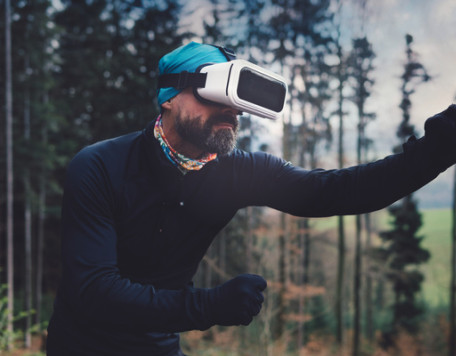© Pint of Science, 2025. All rights reserved.
It perhaps isn't a surprising revelation that making the human body is an incredibly difficult process! By the time we're born our body already contains trillions of cells specialised to help us survive and grow.
At this event we bring in experts on pregnancy to discuss the latest research on the mystical process behind a baby being made, including some truly cutting-edge technology.
At this event we bring in experts on pregnancy to discuss the latest research on the mystical process behind a baby being made, including some truly cutting-edge technology.
Human embryo development: outside and inside the womb
Marta Shahbazi
(Group leader at the MRC Laboratory of Molecular Biology (LMB))
Human reproduction is very inefficient. It is estimated that only 30% of all conceptions make it to a live birth. However, the reasons behind early pregnancy loss remain very poorly understood. In this talk, Dr Shahbazi will discuss novel methodologies that allow us to study human embryos in the laboratory and recreate human embryogenesis using stem cells. These cutting-edge techniques promise to shed light on the first stages of our development and tackle the issue of pregnancy loss.
Why placental development is essential for embryogenesis
Courtney Hanna
(Group leader at the Department of Physiology, Development and Neuroscience, and Centre for Trophoblast Research)
Courtney Hanna did her Ph.D. in Medical Genetics at the University of British Columbia studying the aetiology of recurrent miscarriage. In 2013, she moved to Cambridge to do a postdoctoral fellowship at the Babraham Institute, investigating epigenetic programming in oogenesis. In 2018, Courtney undertook a semi-independent Next Generation Fellowship from the Centre for Trophoblast research to study epigenetic programming in the placenta. In 2021, she established her research group as a Sir Henry Dale Fellow in the Centre for Trophoblast Research and Department of Physiology, Development and Neuroscience at the University of Cambridge. Her research group uses multi-omics sequencing approaches, developmental biology, and mouse genetics to investigate the molecular mechanisms regulating early placental development.
Map data © OpenStreetMap contributors.
Other The Castle Bar events
2025-05-20
Altered State: Drugs and the Brain
The Castle Bar
37 St Andrew's Street, Cambridge, CB2 3AR, United Kingdom
2025-05-19
Change your Brain: Relationships, Ideologies and Virtual Reality
The Castle Bar
37 St Andrew's Street, Cambridge, CB2 3AR, United Kingdom


